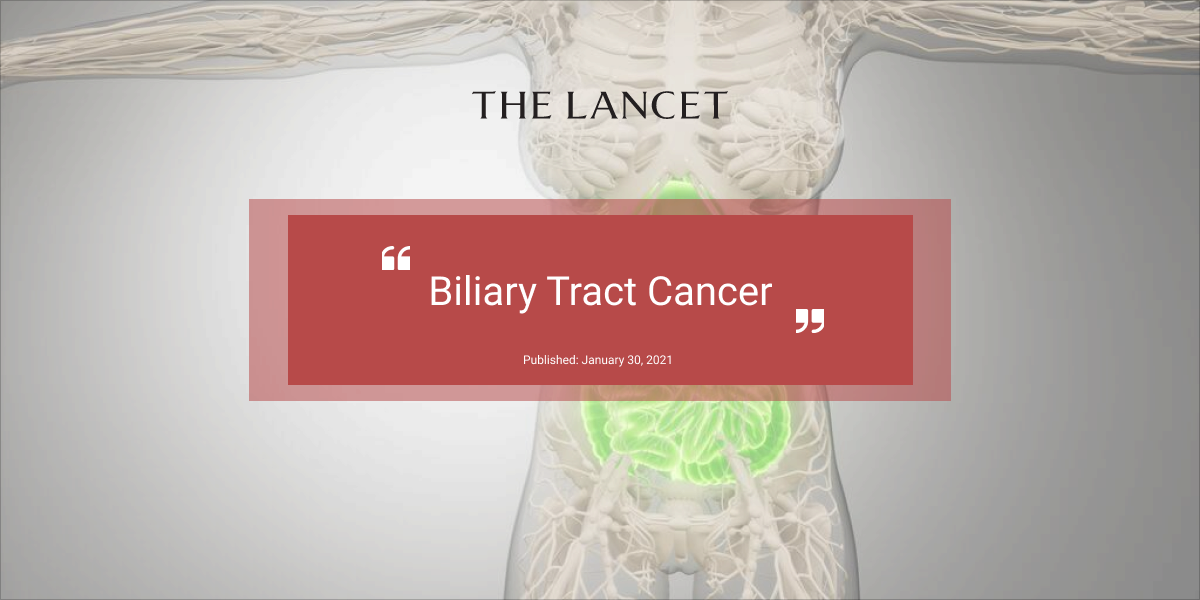Biliary tract cancer
Biliary tract cancers, including intrahepatic, perihilar, and distal cholangiocarcinoma as well as gallbladder cancer, are low-incidence malignancies in most high-income countries, but represent a major health problem in endemic areas; moreover, the incidence of intrahepatic cholangiocarcinoma is rising globally. Surgery is the cornerstone of cure; the optimal approach depends on the anatomical site of the primary tumour and the best outcomes are achieved through management by specialist multidisciplinary teams. Unfortunately, most patients present with locally advanced or metastatic disease. Most studies in advanced disease have pooled the various subtypes of biliary tract cancer by necessity to achieve adequate sample sizes; however, differences in epidemiology, clinical presentation, natural history, surgical therapy, response to treatment, and prognosis have long been recognised. Additionally, the identification of distinct patient subgroups harbouring unique molecular alterations with corresponding targeted therapies (such as isocitrate dehydrogenase-1 mutations and fibroblast growth factor receptor-2 fusions in intrahepatic cholangiocarcinoma, among others) is changing the treatment paradigm. In this Seminar we present an update of the causes, diagnosis, molecular classification, and treatment of biliary tract cancer.
![]()
![]()
![]()
© 2021 Elsevier Ltd. All rights reserved.



